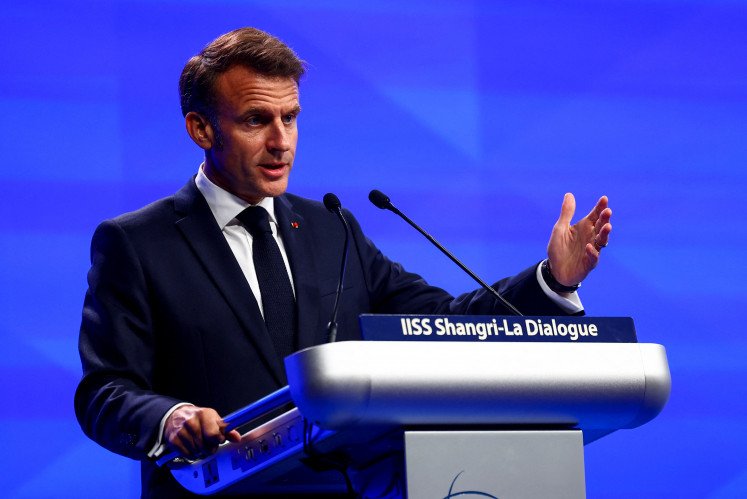KPK to offer modest living training, but critics unconvinced corruption culture will fade
Change text size
Gift Premium Articles
to Anyone

T
he Corruption Eradication Commission (KPK), along with the Jakarta administration, plans to offer courses to train civil servants and their spouses in how to live a more modest lifestyle, following recent instances of public officials parading their extravagant lives despite their wealth not matching their official incomes.
Incidents of officials flexing their wealth has not only drawn the ire of many Indonesians on social media but also prompted the KPK to investigate the sources of their wealth.
But critics remain unconvinced that the training program will be an effective solution in stamping out illicit means of gaining wealth among public officials.
“A workshop will not at all be effective,” Zaenur Rohman of Gadjah Mada University’s Center for Anticorruption Studies (Pukat UGM) said on Monday.
Rather than a workshop, Zaenur urged the leaders of state institutions and regional administrations to instead set an example by maintaining strict anticorruption rules within their ranks, including upholding existing ethics codes among civil servants and handing down strict administrative sanctions for those breaching ethics.
“Some think that it’s fine for civil servants to live lavish lives, as long as they earn it fairly. But, bearing in mind the disparity in the country as some are still living under the poverty line […] I don’t think it can be justified,” he added.
Echoing Zaenur, lawmaker Ahmad Sahroni of House of Representatives Commission III overseeing law, human rights and security, doubted that the workshops would be effective.
“[We cannot] force civil servants into living modestly, where they would instead further conceal their corruption and illicit [earnings]. That would be even more dangerous,” Ahmad said on Friday, as quoted by kompas.com.
The NasDem Party politician went on to say that, while the workshops would not be harmful, it would be better for the KPK to instead focus its attention solely on sniffing out potential corruption, money laundering and other illicit means for gaining wealth among public officials.
“The KPK also has to be stricter in making officials submit their wealth reports [LHKPN]. [The KPK] needs to remind those who forget, and to actively ask for those who intentionally [do not submit their wealth reports],” Ahmad said.
The plan to offer the classes was first revealed by the Jakarta administration last week, with the city’s inspectorate claiming that the program would help to preserve the integrity of members of its civil service.
“We will invite officials, and also their wives, to be taught by the KPK. It is likely to be a two-day event,” Jakarta Inspector Syaefuloh Hidayat said on Friday, as quoted by Tribunnews.com.
Syaefuloh said that the program was specifically only for Jakarta civil servants, although no date has yet been determined.
Aside from attending the workshops, Syaefuloh also urged the spouses of civil servants to take a more active role in preventing corruption and bribery by asking their partners to clarify their earnings. “Don’t ask them questions only when they do not bring any money home but also ask when they do so, ask them how they got the money.”
On Monday, the KPK summoned the head of the Lampung Health Agency, Reihana, for a clarification over her wealth on the grounds that her wealth report she had submitted to KPK did not match her profile as a civil servant. This came after she recently grabbed public attention on social media for showing off her luxury bags, allegedly worth up to Rp 200 million (US$13,587).
Last week, the Jakarta administration suspended one of its senior officials, Selvy Mandagi of the North Jakarta Public Housing Agency, after social media users drew attention to her extravagant lifestyle.
Reihana and Selvy are only the latest in a long list of public officials who have come under the scrutiny of the KPK, and of the public, for their suspicious wealth, which all stemmed from former mid-ranking tax collector Rafael Alun Trisambodo. He was arrested early last month on charges of taking bribes from taxpayers for the past 12 years.
Rafael’s case has since opened a Pandora’s Box and sparked an investigation into potential money laundering by Finance Ministry officials, thought to amount to Rp 349 trillion over the past decade.









